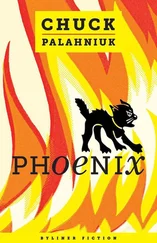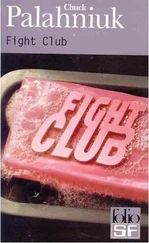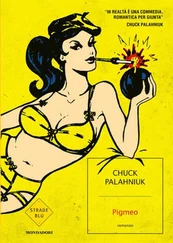Chuck Palahniuk - Diary
Здесь есть возможность читать онлайн «Chuck Palahniuk - Diary» весь текст электронной книги совершенно бесплатно (целиком полную версию без сокращений). В некоторых случаях можно слушать аудио, скачать через торрент в формате fb2 и присутствует краткое содержание. Жанр: Современная проза, на английском языке. Описание произведения, (предисловие) а так же отзывы посетителей доступны на портале библиотеки ЛибКат.
- Название:Diary
- Автор:
- Жанр:
- Год:неизвестен
- ISBN:нет данных
- Рейтинг книги:5 / 5. Голосов: 1
-
Избранное:Добавить в избранное
- Отзывы:
-
Ваша оценка:
- 100
- 1
- 2
- 3
- 4
- 5
Diary: краткое содержание, описание и аннотация
Предлагаем к чтению аннотацию, описание, краткое содержание или предисловие (зависит от того, что написал сам автор книги «Diary»). Если вы не нашли необходимую информацию о книге — напишите в комментариях, мы постараемся отыскать её.
Diary — читать онлайн бесплатно полную книгу (весь текст) целиком
Ниже представлен текст книги, разбитый по страницам. Система сохранения места последней прочитанной страницы, позволяет с удобством читать онлайн бесплатно книгу «Diary», без необходимости каждый раз заново искать на чём Вы остановились. Поставьте закладку, и сможете в любой момент перейти на страницу, на которой закончили чтение.
Интервал:
Закладка:
She gets all this to the cash register, and it’s so far beyond fifty dollars she has to put it on a credit card.
When you’re tempted to shoplift a tube of burnt sienna, it’s time to take one of Dr. Touchet’s little green algae pills.
Peter used to say that an artist’s job is to make order out of chaos. You collect details, look for a pattern, and organize. You make sense out of senseless facts. You puzzle together bits of everything. You shuffle and reorganize. Collage. Montage. Assemble.
If you’re at work and every table in your section is waiting for something, but you’re still hiding out in the kitchen sketching on scraps of paper, it’s time to take a pill.
When you present people with their dinner check and on the back you’ve drawn a little study in light and shadow—you don’t even know where it’s supposed to be, this image just came into your mind. It’s nothing, but you’re terrified of losing it. Then it’s time to take a pill.
“These useless details,” Peter used to say, “they’re only useless until you connect them all together.”
Peter used to say, “Everything is nothing by itself.”
Just for the record, today in the dining room, Grace Wilmot was standing with Tabbi in front of the glass cabinet that covers most of one wall. Inside it, china plates sit on stands under soft lights. Cups sit on saucers. Grace Wilmot points to them one at a time. And Tabbi points with her index finger and says, “Fitz and Floyd ... Wedgwood ... Noritake ... Lenox ...”
And shaking her head, Tabbi folds her arms and says, “No, that’s not right.” She says, “The Oracle Grove pattern has a border of fourteen-carat gold. Venus Grove has twenty- four carat.”
Your baby daughter, an expert in extinct china patterns.
Your baby daughter, a teenager now.
Grace Wilmot reaches over and loops a few stray hairs behind Tabbi’s ear, and she says, “I swear, this child is a natural.”
With a tray of lunches on her shoulder, Misty stops long enough to ask Grace, “How did Harrow die?”
And Grace looks away from the china. Her orbicularis oculi muscle making her eyes wide, she says, “Why do you ask?”
Misty mentions her doctor’s appointment. Dr. Touchet. And how Angel Delaporte thinks Peter’s handwriting says something about his relationship with his dad. All the details that look like nothing standing alone.
And Grace says, “Did the doctor give you any pills to take?”
The tray is heavy and the food’s getting cold, but Misty says, “The doc says Harrow had liver cancer.”
Tabbi points and says, “Gorham ... Dansk ...”
And Grace smiles. “Of course. Liver cancer,” she says. “Why are you asking me?” She says, “I thought Peter told you.”
Just for the record, the weather today is foggy with widely conflicting stories about your father’s cause of death. No detail is anything by itself.
And Misty says, she can’t talk. Too busy. It’s the lunch rush. Maybe later.
In art school, Peter used to talk about the painter James McNeill Whistler, and how Whistler worked for the U.S. Army Corps of Engineers, sketching the coastline settings for proposed lighthouses. The problem was, Whistler wouldn’t stop doodling little figure studies in the margins. He drew old women, babies, beggars, anything he saw on the street. He did his job, documenting land for the government, but he couldn’t ignore everything else. He couldn’t let anything slip away. Men smoking pipes. Children rolling hoops. He collected all of it in doodles around the margin of his official work. Of course, the government canned him for it.
“Those doodles,” Peter used to say, “they’re worth millions today.”
You used to say.
In the Wood and Gold Room, they serve butter in little crocks, only now each pad has a little picture carved in it. A little figure study.
Maybe it’s a picture of a tree or the particular way a hillside in Misty’s imagination slopes, right to left. There’s a cliff, and a waterfall from a hanging canyon, and a small ravine full of shade and mossy boulders and vines around the thick trunks of trees, and by the time she’s imagined it all and sketched it on a paper napkin, people are coming to the bus station to refill their own cups of coffee. People tap their glasses with forks to get her attention. They snap their fingers. These summer people.
They don’t tip.
A hillside. A mountain stream. A cave in a riverbank. A tendril of ivy. All these details come to her, and Misty just can’t let them go. By the end of her dinner shift, she has shreds of napkins and paper towels and credit card receipts, each one with some detail drawn on it.
In her attic room, in the heap of paper scraps, she’s collected the patterns of leaves and flowers she’s never seen. In another heap, she has abstract shapes that look like rocks and mountaintops on the horizon. There are the branching shapes of trees, the cluster of bushes. What could be briers. Birds.
What you don’t understand you can make mean anything.
When you sit on the toilet for hours, sketching nonsense on a sheet of toilet paper until your ass is ready to fall out—take a pill.
When you just stop going down to work altogether, you just stay in your room and phone for room service. You tell everyone you’re sick so you can stay up all night and day sketching landscapes you’ve never seen, then it’s time to take a pill.
When your daughter knocks and begs you for a good-night kiss, and you keep telling her to go to bed, that you’ll be there in a minute, and finally her grandmother takes her away from the door, and you can hear her crying as they go down the hallway—take two pills.
When you find the rhinestone bracelet she’s pushed under the door, take another.
When nobody seems to notice your bad behavior, they just smile and say, “So, Misty, how’s the painting coming along?” it’s pill time.
When the headaches won’t let you eat. Your pants fall down because your ass is gone. You pass a mirror and don’t recognize the thin, sagging ghost you see. Your hands only stop shaking when you’re holding a paintbrush or a pencil. Then take a pill. And before you’re half through the bottle, Dr. Touchet leaves another bottle at the front desk with your name on it.
When you just cannot stop working. When completing this one project is all you can imagine. Then take a pill.
Because Peter’s right.
You’re right.
Because everything is important. Every detail. We just don’t know why yet.
Everything is a self-portrait. A diary. Your whole drug history’s in a strand of your hair. Your fingernails. The forensic details. The lining of your stomach is a document. The calluses on your hand tell all your secrets. Your teeth give you away. Your accent. The wrinkles around your mouth and eyes.
Everything you do shows your hand.
Peter used to say, an artist’s job is to pay attention, collect, organize, archive, preserve, then write a report. Document. Make your presentation. The job of an artist is just not to forget.
July 21— The Third-Quarter Moon
ANGEL DELAPORTE holds up one painting, then another, all of them watercolors. They’re different subjects, some just the outline of a strange horizon, some of them are landscapes of sunny fields. Pine forests. The shape of a house or a village in the middle distance. In his face, only Angel’s eyes move, jumping back and forth on every sheet of paper.
“Incredible,” he says. “You look terrible, but your work ... my God.”
Just for the record, Angel and Misty, they’re in Oysterville. This is somebody’s missing family room. They’ve crawled in through another hole to take pictures and see the graffiti.
Your graffiti.
Читать дальшеИнтервал:
Закладка:
Похожие книги на «Diary»
Представляем Вашему вниманию похожие книги на «Diary» списком для выбора. Мы отобрали схожую по названию и смыслу литературу в надежде предоставить читателям больше вариантов отыскать новые, интересные, ещё непрочитанные произведения.
Обсуждение, отзывы о книге «Diary» и просто собственные мнения читателей. Оставьте ваши комментарии, напишите, что Вы думаете о произведении, его смысле или главных героях. Укажите что конкретно понравилось, а что нет, и почему Вы так считаете.




